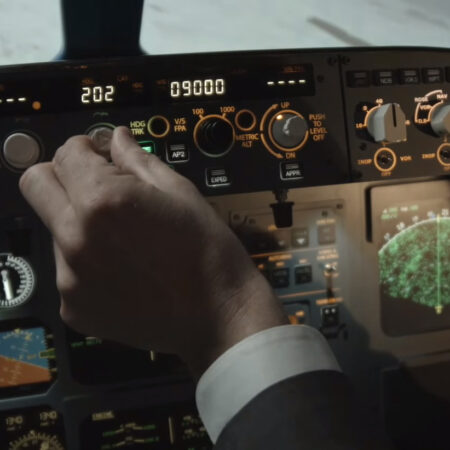
Pilot training in India is an easy process except the exams one has to Clear. DGCA, the authorised organisation to conduct pilot training exams in India, is strict in maintaining quality of cadets and so exams are made a little tough to crack.

Various topics will be covered in the Commercial Pilot License (CPL) course. The following subjects are the part of Commercial Pilot License (CPL) course:-
1.Air Navigation It is used by pilots in aircraft to know their exact position and find their way.Includes calculating position,fuel and sound knowledge of instruments and navigation aids.
2. Aviation Meteorology A subject that covers all the aspects of climatology from an aviation perspective.
3.Air Regulations Air regulations covers the rules that govern flying and aviation.
4.Technical General Technical General encompasses the technical aspect of flight-how an aircraft flies, electrics,the engine,systems of an aircraft etc.
5.Technical Specific Depending upon the aircraft type one chooses to fly,one has to learn about the systems and engine specifications of that aircraft.
-One has to clear papers of these subjects during their training. The exam is conducted by the aviation regulatory body Directorate General of Civil Aviation ( DGCA),India. The exams are conducted online and are MCQ based with no negative marking. Passing marks is 70/100.The exams are conducted four times a year across various centres in India with the provision of On Demand Exams as well.
The schedule is updated here: https://pariksha.dgca.gov.in/Form/Notice_Board_General_PLT
6. Radio Telephony Exam: This examination is conducted by the Wireless and Planning Cell of the Ministry of Communication. The same is about theoretical and practical knowledge of Radio on board the aircraft. This exam is conducted usually six times in a calendar year.Comprises of a written and oral exam.
The schedule for the same is uploaded here: https://dot.gov.in/spectrum-management/2457
Clearing the DGCA CPL (Commercial Pilot License) exams requires diligent preparation, focus, and dedication. Here are some steps you can follow to increase your chances of success:
- Understand the syllabus: Start by familiarising yourself with the exam syllabus and the different topics that are covered. Make a list of all the subjects and topics and prioritize them based on their importance and the amount of time you need to allocate to study each one.
- Create a study plan: Create a study plan that allows you to cover all the topics in the syllabus in a structured and systematic manner. Allocate specific hours for each subject and topic, and set achievable goals for each day or week. Stick to your study plan and be consistent in your efforts.
- Practice regularly: Practice is key to success in any exam, and the DGCA CPL exams are no exception. Practice using previous attempt’s question papers, mock tests, and sample papers to get a feel for the exam format and the types of questions that are likely to appear.
- Seek help if needed: Don’t hesitate to seek help from experienced instructors or aviation professionals if you find a particular topic challenging or confusing. Joining a coaching institute or an online course that provides comprehensive guidance and training for the exams can also be helpful.
- Stay updated: Keep yourself updated with the latest developments in the aviation industry, and stay informed about any changes or updates in the DGCA CPL exam pattern or syllabus.
For RTR(A)
The same above-mentioned steps are applicable for the RTR(A) exams as well but with the key emphasis being on topics including Radio Communication procedure, aviation phraseology, airspace classification,Regulations and Procedure and Radio Principles & Practices.
At Allied Wings, we believe in providing our students with the most efficient and effective training possible. we offer comprehensive training, experienced instructors, and a supportive learning environment to help aspiring pilots clear their DGCA and RTR (A) exams with ease. Contact us today to learn more about how we can help you achieve your aviation goals.


